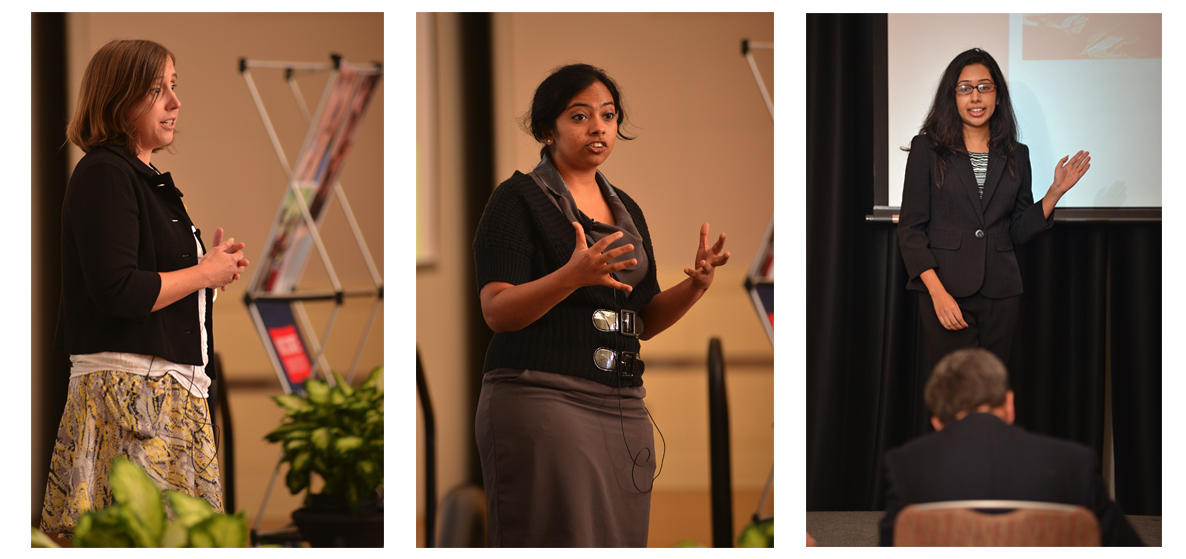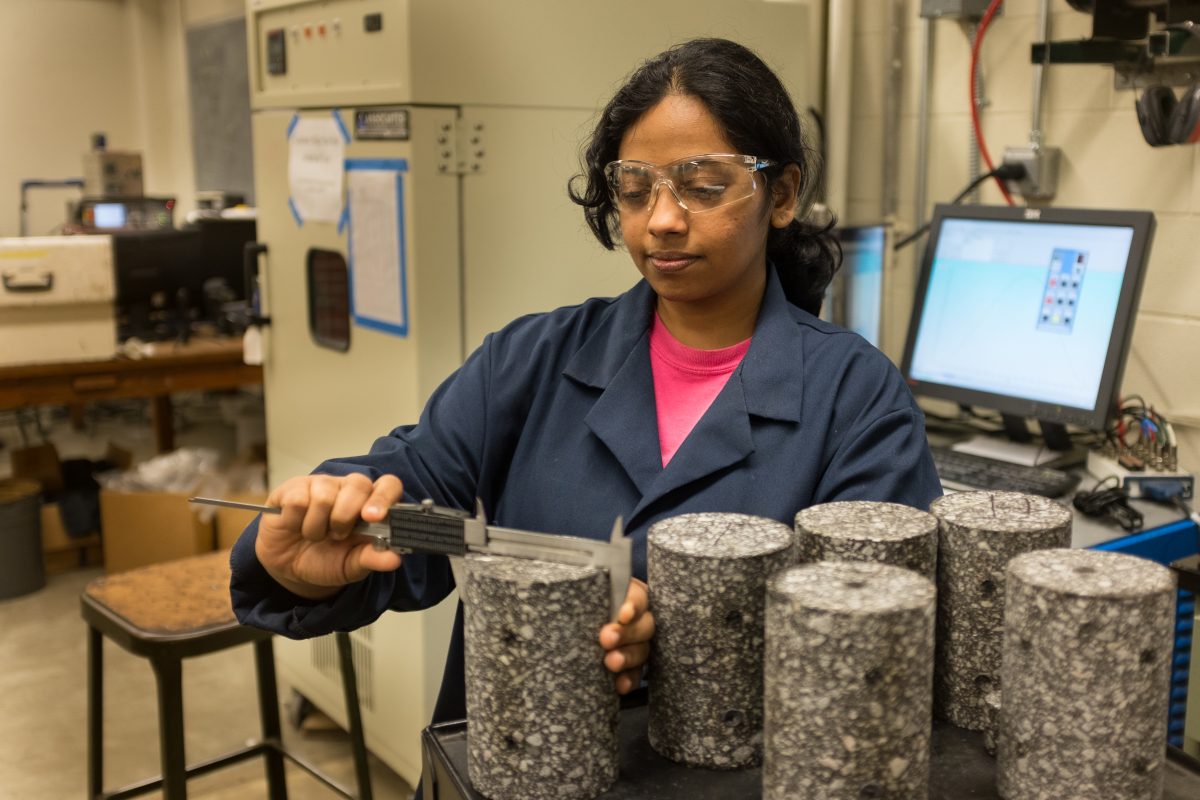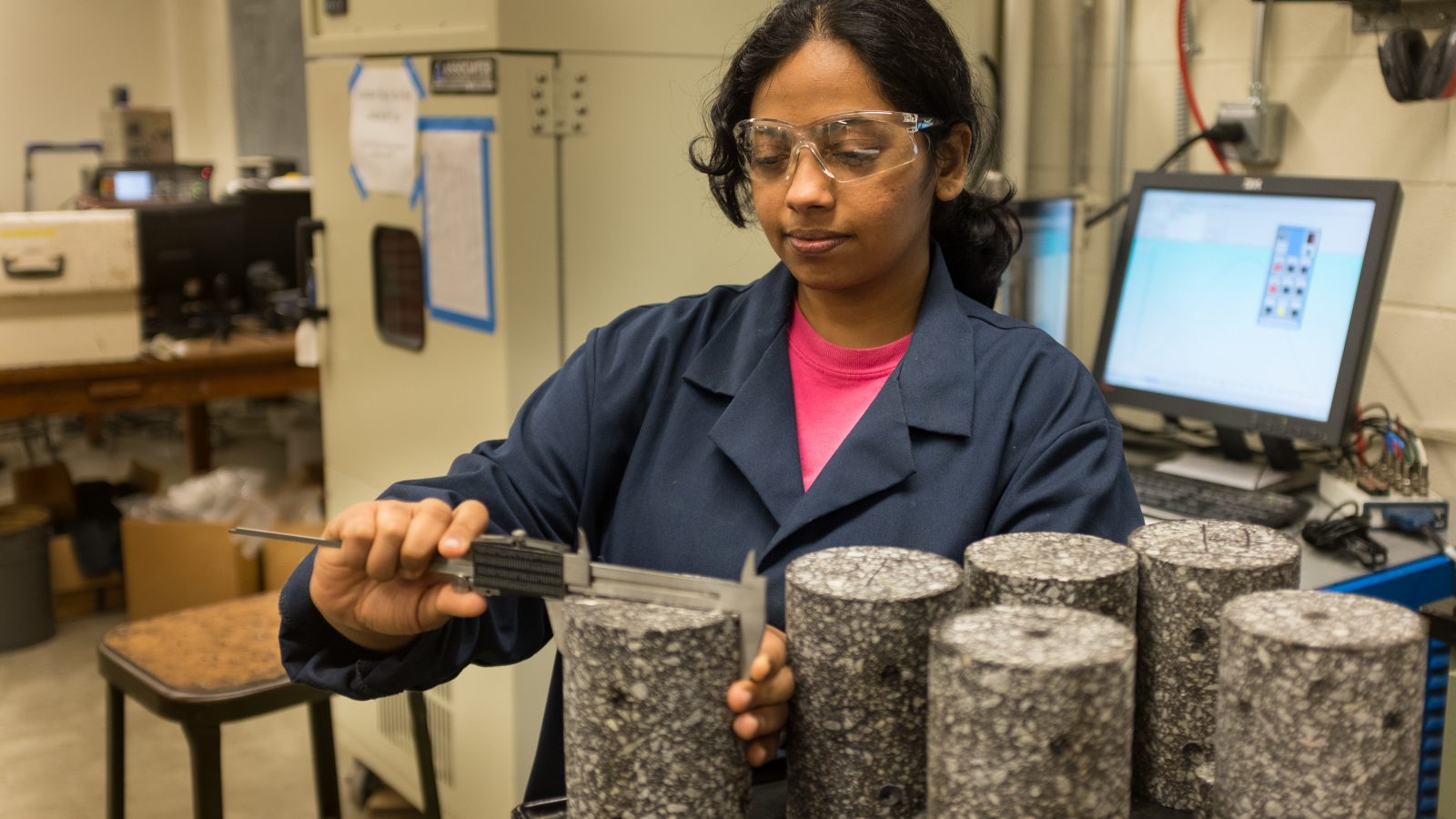On October 28th, at the 3 Minute Thesis Competition, ten finalists passionately and concisely communicated their research projects. From an original field of 28 contestants, 5 of the final 10 were engineering students, with three of those five being from the Department of Civil, Construction, and Environmental Engineering.

All three winners of the NC State 3MT were in fact engineers, with the top honor going to CCEE student Haritha Malladi, with her presentation Reduce and Recycle: How to Turn Our Black Roads Green. Her research advisor is Dr. Akhtarhusein Tayebali. Malladi’s research involves recycling old asphalt by incorporating it into new asphalt for road construction. This technology diverts tons of old road asphalt waste from landfills. Malladi defended her dissertation in October and will graduate in December. She’s got a long road trip planned, so her research into asphalt will take on a new dimension as she plans to log hundreds of miles around the country visiting various Universities “to see what other researchers are up to.” Malladi is passionate about the importance of science communication, a skill she honed while participating in Preparing Future Leaders (PFL) a leadership program offered through The Graduate School. It’s a skill that will serve her well since she’s interested in teaching at the college level, as well as continuing her research.
In February, Malladi will compete at the next level of the Three Minute Thesis Competition which will be held on the campus of UNC Charlotte as part of the Conference of Southern Graduate Schools. Competitors will come from schools through the Southeast.

Three Minute Thesis Explained
The 3MT competition originated at the University of Queensland, Australia in 2008 and is held now at almost 200 universities in 17 countries around the world. The exercise creates an atmosphere where very complicated research topics must be quickly explained in language that everyone can understand. A good presentation leaves your audience wanting to know more.
In a world where the value of communicating effectively about science and engineering is increasingly recognized, this competition plays an important role. The days of engineers and scientists staying hidden away in their cubicles and laboratories is gone.
You can watch the short videos of the 10 finalists at this link.

